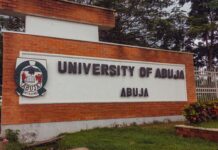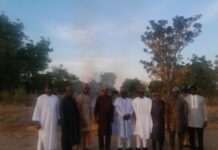The Premium Times Centre for Investigative Journalism (PTCIJ), an NGO, has stressed the need for accuracy and truth in news reporting to promote meaningful growth journalism in the country.
Mr Dapo Olorunyomi, Publisher/Editor-in-Chief of Premium Times Ltd., said this at the closing of the six-month “Dubawa fact-checking and research fellowship” programme in Abuja on Friday.
Olorunyomi, also the Chief Executive Officer of PTCIJ, said that the centre initiative was borne out of the need to tackle issues bordering growth of journalism in the country.
According to him, the concern was on how there could be a positive difference in journalism.
“Immediately Premium Times started, what became very clear was it was impossible not to run into ditch about ways Journalism was carried out, in terms of sustainability and trust.
“Resources to do good journalism had drifted to digital media landscape.
“So these were issues that led into thinking and how we innovated ways on those core issues that defined journalism and subsequently creation of PTCIJ.
“The defining future of good journalism is truth and accuracy; the question about this is that there are things we needed to invest in.
“There can be no meaningful journalism where there is no accuracy and truth in reporting, and that is why journalism must be based on fact-checking,” he said.
Speaking at the event, Mrs Grace Yusuf, a Deputy Editor-in-Chief, with the News Agency of Nigeria (NAN), commended the centre for training Journalists on fact-checking.
She said that cutting-edge journalism thrived through research and fact finding, while urging Journalists to always engage in fact-checking as tool to verify facts for correctness in their news reporting.
“As journalists, it is important to fact-check claims and give the public right information; therefore, fact-checking can be used to tackle fake news in the media.
“Fact-checking can also be used to correct misconceptions,” Yussuf said.
She disclosed that a member of staff of NAN, who was trained in the maiden edition of the Fellowship programme was supported by the management of the organisation to establish special desk on fact-checking.
Some graduands, who spoke at the event expressed appreciation to the centre management for knowledge gained, to have improved quality of their reportage.
Mr Jonas Nyabor, a Ghana Dubawa Fellow, said that he learnt best practices through knowledge sharing from trainees of other nationals in the cause of the programme.
“It has been rewarding, especially having gone through strict measures; collaboration and partnership with others on sourcing for document was interesting.
“The relationship cannot be underestimated, in terms of solving myriads of challenges in relation to democracy,” Nyabor said.
Mr Alie Tarawally, a Sierra Leone Dubawa Fellow, said that the training exposed him to modern techniques towards verifying information.
Tarawally said, “It was amazing to have been the first fellow from Sierra Leone; it indeed exposed me to a whole lot of new ideas.”
Meanwhile, a Nigerian Dubawa Fellow, Dr Rahimat Adeniran, staff of Lagos State University, said that the programme afforded her opportunity to learn about fact-checking.
“It helped me to explore new frontiers that ordinarily would have been impossible for me, but such has become a thing of the past,” Adeniran said.
High point of the event was presentation of the best fact-check award to Alie Tarawally, best research article award to Raji Rasaki, 4th place best fact-check award to Kunle Adebajo and Vivian Chime, respectively.
1st Runner-up best fact-check award to Francis Iloani, Daily Trust Reporter, 1st Runner-up best fact-check award to Jonas Nyabor and best Fellow award to Francis Iloani.
NAN reports that out of 104 people applied for the programme 22 were carefully selected; which consist 17 from Nigeria, 4 from Ghana and 1 from Sierra Leone. (NAN)




